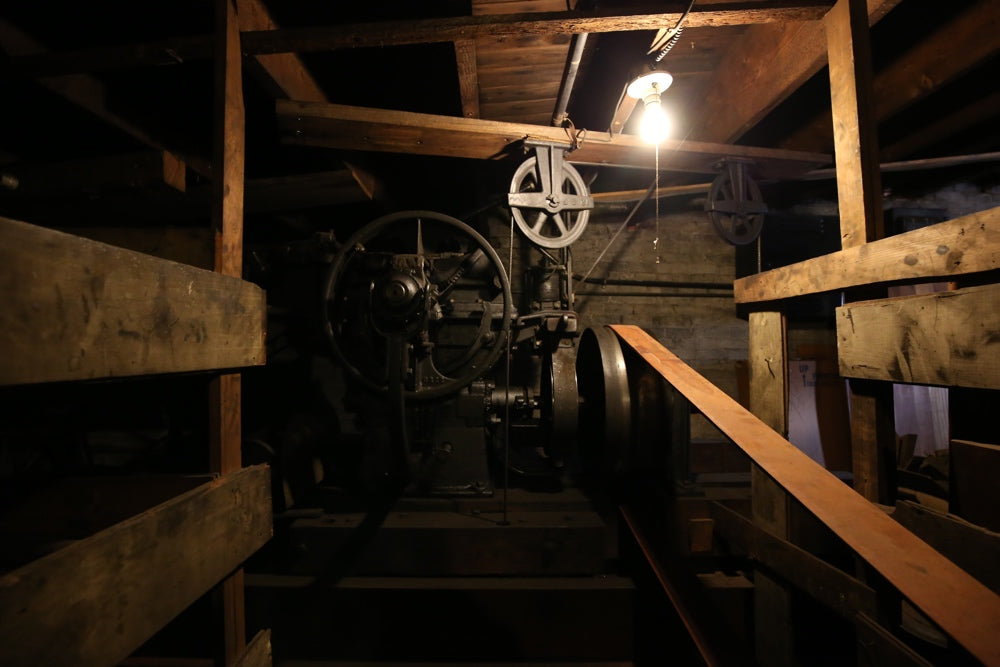“I take up the duties and cares of this very honorable position with a good deal of diffidence, and some dread.”
By the time he spoke those words, taking things up—also down—was already an important feature in the life of Frederick B. Farnsworth.
It was January 1, 1897, and Farnsworth, born 1851, was delivering his first address as New Haven’s mayor. In addition to getting a six-month extension, his single term in office would be irregular for many reasons, starting with Farnsworth’s decision to appoint city officials based solely on merit, without consideration for political favors owed. Before the next election, when the party machinery that’d nominated him would get its revenge, Farnsworth presided over the enactment of a new city charter, which streamlined New Haven’s government from a tripartite mess of “town,” “city” and “school district” authorities into a unified administrative structure like the one we know today.
sponsor message
While he was cutting down on municipal inefficiency, Farnsworth was keeping up two other jobs. By 1895 he owned and operated both the McLagon Foundry Co., which made metal castings on Audubon Street, and the Eastern Machinery Co., which fabricated brick-makers, cinder-crushers and elevators—and installed and serviced the latter as well—out of a factory at Ashmun and Gregory Streets. The brick-making machines helped buildings reach into the sky; the cinder-crushers provided fill for roads along the ground; and the elevators, of course, went both high and low.
At least one of those elevators still does. Fast approaching its 100th birthday, the freight elevator at ACME Vintage Furniture, purchased from Eastern on October 20, 1916, may very well be the oldest operational elevator in New Haven. It appears to be older than New Haven’s other prime contender: a beautiful—though currently out-of-order—specimen at The Grove, which once carried shoppers up and down the Horowitz Brothers department store. Though the specific timing of that elevator’s commission hasn’t been determined, language on the apparatus—which bears the tags of elevator-maker F. S. Payne Co. of Cambridge, MA—strongly suggests it was built no earlier than 1917.
ACME’s old freight elevator is now far older than the “Eastern Machinery Co.” name emblazoned so strikingly on its tags. After 60 years of business, Fred Farnsworth—Frederick’s grandson and the business’s principal stockholder at the time—changed the name to Eastern Elevator Co. in 1955, reflecting what was by then the company’s focus on elevator installation and maintenance. He was grooming a fourth generation via his son Paul B. Farnsworth—who would later co-found his own successful business, Elevator Service Company, Inc.—when the multinational Dover Corporation, of which Eastern had been a longtime client, bought the company up. That was in 1998. Within months, Dover’s entire elevator division, stocked with acquired companies like Eastern, was itself purchased, and not long after that, the defining feature of the Farnsworth business’s name—“Eastern”—was history.
The ACME elevator’s roofless, wood-paneled car, scuffed by all the furniture it’s moved and girded here and there by riveted strips of metal, is not. To this day it travels up and down on wooden—not metal—rails, a feature Paul says would immediately signal to an expert that the elevator is a bonafide antique. But by that point in the visit, the revelation of its historic status had already come. Paul had cross-checked the elevator’s serial number, found by buffing a grease-covered tag on the upper machinery in ACME’s attic, against a log book his great-grandfather had used to track orders starting in 1903, confirming the 1916 purchase date.
Knowledge of its true age added to the sense of wonder that permeated the air as Robert Greenberg, son of ACME owner Alan Greenberg and grandson of founder Joseph Greenberg, took Paul and me for a spin. On the way up, Paul quietly observed his great-grandfather’s creation, while Greenberg—a self-trained historian whose passion for New Haven’s past is virtually unmatched, and who’d only just confirmed the historical significance of the elevator he’d been operating for much of his life—looked up and around, visibly reverent, a single overhead bulb casting light and shadow across involuntary expressions of awe. On the way down, after triggering the button on the signal rope and prompting a raspy electronic whir, Greenberg said, “You hear that sound? That’s a nice engagement. That’s the right sound.”
It’s a sound that can’t be heard virtually anywhere else. The old elevators from New Haven’s industrial heyday have been destroyed by the march of history—and ACME’s might be next. After 104 years, the Greenberg family business is shutting down, and the building that housed it is up for sale along with much of what’s inside. That includes a collection of items Greenberg considers family heirlooms, stacked in the attic around an oil-black mass of machinery with a motor and long leather belt that still takes things up and down after 100 years.
It also includes an even older, maybe rarer sort of elevator, which we’ll examine tomorrow.
ACME Vintage Furniture
33 Crown St, New Haven (map)
(203) 787-0243
www.acmevintagefurniture.com
Written and photographed by Dan Mims. Images 1, 7 and 10 feature Paul B. Farnsworth. Image 2 features Frederick B. Farnsworth, as painted in his mayoral portrait. Images 3 and 13 feature Robert Greenberg.









